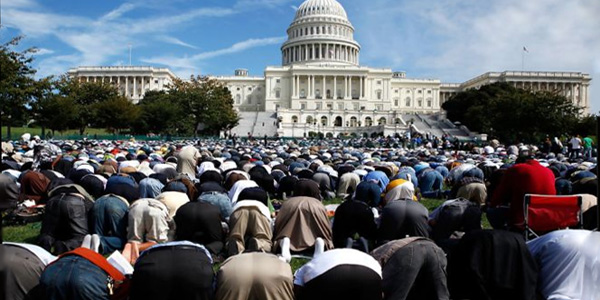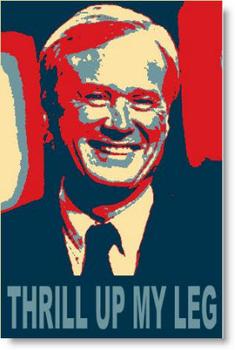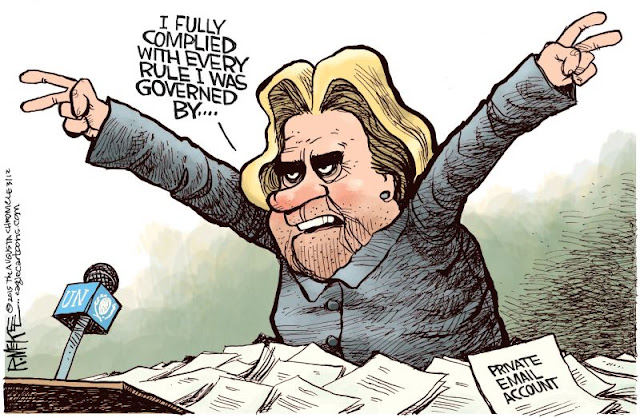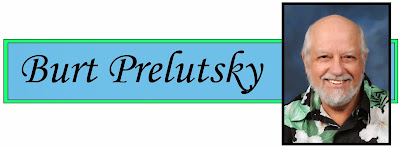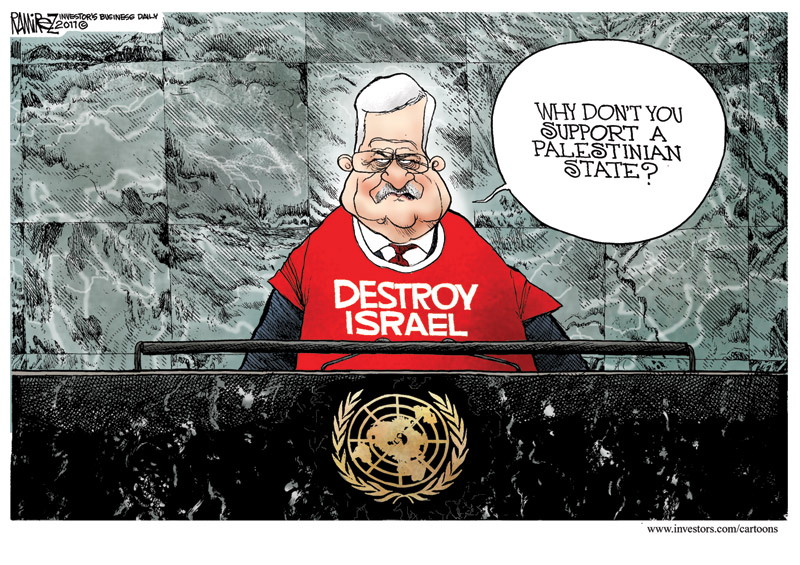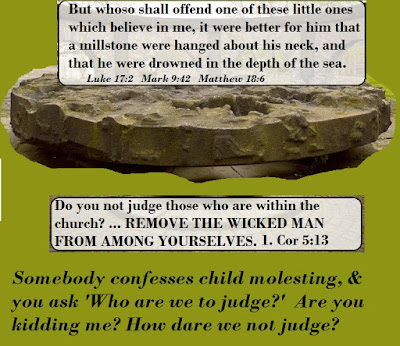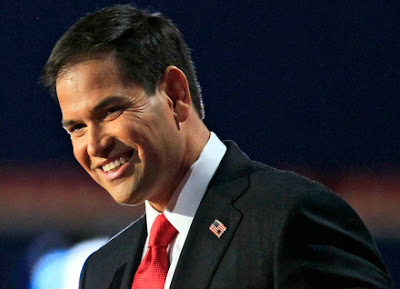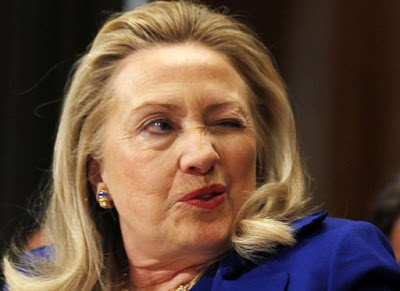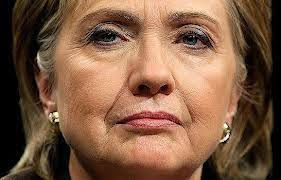If Hilly Clinton is concerned enough about her candidacy to already be making accusation of racism against her potential Republican rivals, this is going to be a long election cycle for her and for the rest of the country.
Down in Texas for a campaign event aimed at restoring her relationship with black Democrats who rejected her 2008 candidacy, Clinton said that laws requiring voters to show identification at polls were part of “a sweeping effort to disempower and disenfranchise people of color, poor people and young people from one end of our country to the other.” Note the language here. It’s not a misguided effort with an unfortunate result, it is a deliberate effort to prevent minorities from voting. That’s not just racist, that’s evil.
Clinton even made it personal, saying potential general election foes Jeb Bush, Scott Walker and Rick Perry were “deliberately trying to stop” minority voters from participating. It’s language that might even give voter-ID opponent President nObama some pause, but Clinton tore into her topic with evident relish. In this candidacy, Clinton has seemed at times uncertain and usually vague. When it came to racially charged, partisan attacks, however, she was imbued with a new vitality and was nothing if not direct. In an ironic turn, Clinton accused Republicans of “fear-mongering about a phantom epidemic” as she intoned against urgent dangers to civil rights.
Why would a politician go so bananas over policies that are supported by something like seven out of 10 Americans? The standard media take on Clinton’s overheated rhetoric is that she is still determined to avoid her 2008 fate by pandering to, one by one, each of the parts of the Democratic coalition. It’s been rolling out at the rate of about one group and one policy reversal or expansion a week. And that is surely the biggest part of this.
But when a candidate, especially a person of pallor such as Clinton, is out making over-the-top charges of racism at this point in an election cycle it certainly does not suggest a confident candidate or campaign. While Republicans might take heart that the woman who remains ahead in hypothetical matchups against anyone in their field is throwing haymakers 17 months before Election Day, they also ought to remember what else this gambit says about Clinton: She will do whatever it takes to win.
COUNTERMEASURES
“Hilly Clinton’s rejection of efforts to make it easier to vote and harder to cheat not only defies logic, but the will of the majority of Americans. Once again, Hilly Clinton's extreme views are far outside the mainstream.” – Gov. Scott Walker, R-Wisc., in a statement. -Fox News
Hilly Clinton is at odds with her party on foreign policy, but neither her opponents nor the press seem much inclined to say so. Can Linc Chafee help push the discussion a few kilometers down the path? Washington Free Beacon Editor and avoirdupois enthusiast Matthew Continetti and National Journal Political Editor Josh Kraushaar mull that one over with Chris Stirewalt. WATCH HERE.
Just in time for Saturday’s 71st anniversary of the D-Day landings at Normandy, Global News describes how a Canadian documentary crew discovered part of “Fortress Europe,” a German machine gun bunker that had been buried for decades beneath the sands of Juno Beach. “The [crew] scouted the area for three days…using ground penetrating radar and aerial photos from shortly after the Second World War, which narrowed down the locations where the concrete shelters might lie beneath the sand. But it was a muffled ‘clunk’ of a shovel that alerted them their mission was a success….[revealing] the spot where German soldiers would have fired on the 3rd Canadian Infantry Division on June 6, 1944.…More than 350 Canadian soldiers who lost their lives that day.”
[While newsreels and photos of the D-Day landings have become iconic, stateside images are less familiar. Honoring the anniversary, National Journal offers a mix of photos of America during the war years.] -Fox News
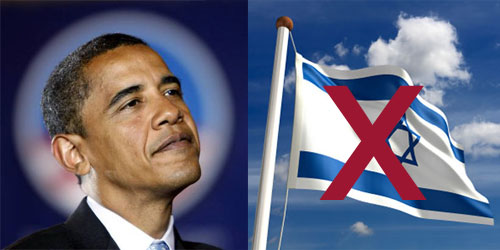
It’s the media version of Frank Drebin: Please disperse, there’s nothing to see here. Trey Gowdy, pack your bags and go home.
Of course, no one actually believed that this batch of emails would produce a smoking gun on Benghazi. Hilly Clinton has sought to avoid public scrutiny of her emails since before she was sworn in as secretary of state. When she did turn over some of her emails to the State Department, it was Clinton and her lawyers who decided which ones they would make available and which they would withhold. While it might be useful for Clinton defenders to pretend otherwise, there was no expectation that Clinton would voluntarily share incriminating emails, especially now, in the first weeks of her presidential campaign.
Yet for journalists interested in reporting on Clinton’s emails rather than hastily exonerating their author, the hundreds of pages released last week included a number of disclosures, some of them inadvertent, that raise new questions about Hilly Clinton, the State Department, Libya, the Benghazi attacks, and presidential politics. The good news: Some journalists are looking for answers. And so are the investigators who work for the House Select Committee on Benghazi.
Sidney Blumenthal is at the heart of those new questions. A noted conspiracy monger and longtime Clinton confidant, Blumenthal provided Clinton a steady stream of outside intelligence on Libya while she was secretary of state. Some of his information was accurate and some of it was not, but Clinton thought enough of Blumenthal to circulate his reports to top State Department advisers, sometimes with notes ordering them to take some kind of action in response. Clinton downplayed the Blumenthal emails as “unsolicited” thoughts from an old friend. That doesn’t quite capture the dynamic.
For Blumenthal, friendship with the Clintons came with considerable benefits. Blumenthal had been banned from State Department employment by the nObama administration, and it appears that if he couldn’t collect a government check for advising the Clintons, he would collect one from the Clintons directly. Politico’s Ken Vogel reports that Blumenthal was paid $10,000 a month as an employee of the Clinton Foundation from 2009 to 2013 and the same sum as a consultant after he left the payroll in 2013 through March 2015. According to the New York Times, Blumenthal had access to private intelligence on Libya because he was advising “business associates . . . as they sought to win contracts from the Libyan transitional government.”
The deteriorating security situation in Libya generally, and Benghazi specifically, was a dominant theme in the emails. Clinton defenders have sought to insulate her from criticism of inadequate security before the attacks by suggesting that decisions about security for U.S. diplomatic personnel were made well below her level. There are many reasons to be skeptical of those claims. The emails make clear that Clinton was deeply involved in virtually every aspect of Libya policy; one internal State Department email lays out the many ways she drove administration decision-making on Libya. Was Clinton a deeply engaged, hands-on manager of every aspect of Libya policy other than security?
If Clinton wasn’t involved in security decisions, the emails make clear that she should have been. Reports that Clinton received and circulated, from both official and unofficial channels, demonstrate the dire security challenges for Americans in Libya.
It’s not just Blumenthal’s emails that raise additional questions. An email sent at 9:17 a.m. on September 15, 2012—four days after the fatal attack in Benghazi—by an aide advises Clinton that Dan Pfeiffer, the director of communications at the White House, “has some sensitive items that he would like to personally show you when he arrives.” Clinton slept in and missed the meeting and wrote back later in the morning to request that Pfeiffer return to brief her. It’s possible that these “sensitive items” had nothing to do with Benghazi. But the request for a meeting came after a flurry of emails the previous evening between officials from the White House, the State Department, and various national security agencies. Those emails concerned edits to the administration’s much-discussed Benghazi “talking points” and included strong objections from the State Department’s “building leadership” to some of the language. White House officials emailed the group to assure everyone that the objections would be addressed the following morning at a meeting of the Deputies Committee.
An email sent to several top administration officials, including top Clinton aide Jake Sullivan, at 11:08 that same morning is introduced this way: “Per the discussion at Deputies, here are the revised TPs for HPSCI [talking points for the House Permanent Select Committee on Intelligence]. Let me know what you think.” The language in the revised talking points is redacted in its entirety.
Given what we know about the various iterations of the talking points, it’s unlikely that these redactions conceal anything not already known. But as that example suggests, what’s missing from the emails is often as provocative as the content. On April 8, 2011, Clinton forwarded a Blumenthal email to Sullivan. In the version of that email released by the State Department, most of Clinton’s note is redacted. It reads: “FYI. [Redacted].” But the same email was obtained and published by the New York Times before the State Department release, and in that version, the sentence is unredacted. It reads: “FYI. The idea of using private security experts to arm the opposition should be considered.”
Why did the State Department—or Clinton herself—want that sentence redacted? That’s unclear. And there may well be an innocent explanation. But the note raises additional questions. Did the idea of supplying arms to the Libyan opposition through private security experts receive the consideration Clinton wanted? Did it happen? Was Blumenthal involved?
Beyond these questions, the Select Committee on Benghazi notes several “inexplicable gaps” in Clinton’s email records “during key times of her involvement with Libyan policy.” There are no emails between September 14 and October 21, 2011, five weeks surrounding Clinton’s trip to Libya. (The committee notes that this was when a “now-famous picture of Clinton on her BlackBerry was taken.”) There is another gap between October 21, 2011, and January 5, 2012, “when the State Department was extending the Benghazi mission for another year.” And a third major gap occurs between April 27 and July 4, 2012, a period of “increased security” when the U.S. compound and the British ambassador were both attacked.
It’s hardly necessary to be a conspiracy-minded conserv-ative to be skeptical of the claim that Clinton—who, by the State Department’s own account, drove Libya policy—neither sent nor received any Libya-related emails during these long stretches of heavy Libya-related policy-making.
Perhaps the most important effect of these latest emails is the simplest one. They demolish the claim that we already know the answers to the important questions about the attacks and the administration’s response.
There is much more to learn. The nObama administration only recently turned over related emails to the Accountability Review Board, the State Department’s internal and highly politicized investigation of Benghazi. And the State Department started to provide the Select Committee on Benghazi with emails from Clinton’s top advisers just last week.
This belated, halfhearted cooperation is hardly an indication that the nObama administration is prepared to assist the investigation going forward. The committee continues to press Clinton and the State Department to turn her email server over to a neutral third-party for a thorough examination. Lanny Davis, a most ardent Clinton defender, originally said she would have no problem providing it. But Clinton has since made clear she has no intention of doing so voluntarily.
That doesn’t sit well with the Benghazi committee or House speaker backstabber John Boehner. And while sources in both offices caution that no final decisions have been made, every day that passes increases the likelihood that the House will subpoena the server.
That day should come sooner rather than later.

